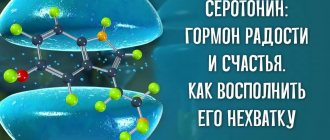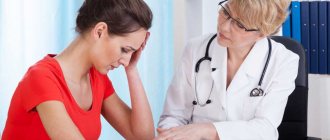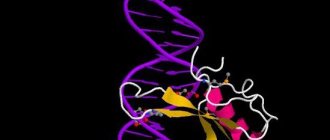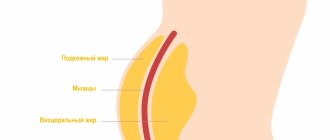PMS symptoms, known as premenstrual syndrome, begin 5-14 days before your period begins. Here are 10 main signs that a woman experiences during this period. You can deal with most of them at home. But if the manifestations are too active and affect your life and interfere with you, be sure to discuss this with your gynecologist.
PMS symptoms
Treating PMS Symptoms
More than 90 percent of women experience PMS symptoms to some degree. They usually go away in the first two days after the start of menstruation. We publish the 10 most common signs that your period is approaching.
PMS - what is it?
PMS is not a disease, but a set of symptoms that are characterized by cyclicity and are closely related to the menstrual cycle. More than 90% of menstruating women are susceptible to PMS, the nature of which has about 100 different symptoms and causes (hormonal imbalance, stress, poor diet).
Premenstrual syndrome, also premenstrual tension syndrome, premenstrual illness, cyclic syndrome (PMS) is a complex cyclic symptom complex that occurs in some women in the premenstrual days (2-10 days before menstruation) and is characterized by psycho-emotional, vegetative-vascular and metabolic-endocrine disorders, which, in turn, negatively affect a woman’s usual lifestyle.
Many studies show that people are sure that in most cases female irritability is caused by PMS. What is premenstrual syndrome in women interests many people. However, in fact, the cause of its occurrence is not always associated with psychological reactions (irritation, nervousness). PMS is a system of vegetative-vascular, psycho-emotional and endocrine disorders that occur after ovulation and before the start of the menstrual cycle. Scientists believe: this condition is a consequence of the maturation of the egg and is always accompanied by a sharp drop in hormones (estrogen, progesterone) in the female body.
Some women may not notice hormonal changes, others feel them, but this does not have a strong impact on the usual rhythm of life. However, there is a category of women for whom hormonal fluctuations are critical, which leads to a sharp and prolonged deterioration in well-being. Most often, “menstrual” symptoms (bloating, headache, fever, irritability, moodiness) are typical for women over 30 years old. Sometimes symptoms can intensify due to age-related changes, for example, with the approach of menopause (perimenopause) - a physiological stage associated with the gradual decline of the reproductive function of the female genital organs.
Forms of manifestation
Cyclic syndrome can manifest itself in several forms:
- neuropsychic . This form is characterized by a large number of emotional symptoms;
- cephalgic . With this form, severe and prolonged migraines are expressed;
- edematous _ With the edematous form, disturbances occur in the water-salt balance, which cause the accumulation of fluids in the tissues. PMS can cause frequent thirst or increased blood pressure;
- crisis _ It is the most severe form of PMS. In this form, severe pressure surges and loss of performance occur during this premenstrual stage.
What are the symptoms before menstruation?
Frequent changes in mood, the appearance of headaches and pain in the back and lower back, as well as discomfort in the chest area may indicate that a woman is experiencing premenstrual syndrome. How many days it takes for PMS to set in and what symptoms it manifests itself in has not been precisely established by science. Everything is individual and depends on the woman’s health and general well-being.
Psychological symptoms of PMS:
- anxiety, irritability, tearfulness, feeling of depression;
- frequent and sudden mood changes;
- sleep problems - insomnia, constant awakenings at night, daytime sleepiness;
- loss of strength, lethargy and passivity;
- absent-mindedness, difficulty concentrating.
Physical symptoms of PMS:
- soreness of the mammary glands, an increase in their volume;
- swelling, sometimes quite noticeable;
- migraine or dizziness;
- nausea and vomiting;
- back and joint pain;
- thirst, which is accompanied by frequent urination;
- gastrointestinal disorders;
- attacks of rapid heartbeat, fever;
- the appearance of skin irritations;
- food cravings - mainly sweet and salty.
In most cases, signs of psycho-emotional and physical discomfort disappear after the first days of menstruation. If the symptoms manifest themselves clearly and often bother a woman, she should seek help from a gynecologist. Also, medical supervision is required for menstruation in adolescents, which are often accompanied by the appearance of dermatological problems (acne, acne) and disturbances in the functioning of the sweat glands (increased sweating).
Classification
The form of PMS can be different:
- Neuropsychic on the background of disorders of the central nervous system with the appearance of tearfulness, depression, unmotivated aggression, irritability.
- Vegetovascular , with the appearance in women of pressure surges, nausea, headaches, rapid heartbeat, and dizziness.
- Endocrine for metabolic disorders accompanied by attacks of flatulence, increased sweating and temperature up to 39 degrees, severe thirst, shortness of breath, diarrhea, decreased intelligence and memory.
- Cephalgic in detecting hypertension, diseases of the cardiovascular system.
- Crisis , as a more severe form, often occurring against the background of severe overwork, stress and anxiety. It manifests itself in the form of surges in blood pressure, heaviness and a feeling of compression in the sternum, increased heart rate, panic attacks, and migraines.
Signs of PMS in women have different directions. For some, this is a common occurrence and not even a reason to pay attention. More susceptible women begin to panic and be depressed before menstruation, expecting unpleasant manifestations.
Taking into account the individual characteristics of the body, doctors distinguish 3 options for the development of the syndrome:
- the appearance of symptoms in the 2nd phase of the cycle and complete resolution with the arrival of menstruation;
- disappearance of symptoms after the complete cessation of menstruation, but intensification of manifestations with age;
- progression of unpleasant symptoms with the onset of menstruation and complete disappearance 2-3 days after its cessation.
How many days before your period does PMS start?
For most women, PMS begins 2-10 days before menstruation; the discomfort ends with the onset of menstruation. If a woman notices a regular deterioration in her well-being as a woman, she needs to see a doctor, because it could be PMS. The reasons for the deterioration of well-being and the development of premenstrual syndrome can be different and are determined by a gynecologist, and in some cases the supervision of an endocrinologist or other highly specialized doctor (neurologist, psychologist) is required.
Throughout life, under the influence of many factors (due to lifestyle, poor diet, stress, hormonal disorders, inflammatory processes in the body), the signs of PMS can change. Premenstrual syndrome, which is treated by a gynecologist, can aggravate a woman’s existing health problems. For example, studies have shown that in women diagnosed with myalgic encephalomyelitis or chronic fatigue syndrome, PMS leads to heavy menstrual bleeding or premature menopause.
Treatment
Treating the syndrome means regulating the functions of the hypothalamus and eliminating existing internal diseases, in particular dehydration.
With PMS, it is important to consider the severity of the syndrome. The main treatment methods include:
- acupuncture,
- reflexology,
- medications,
- herbal medicine,
- hormonal therapy using estrogen and progesterone.
Non-drug approaches
In order to ease their well-being and reduce the symptoms of PMS, women are recommended to:
- adjust nutrition;
- exclude chocolate, coffee, alcoholic drinks, fatty foods 7 days before the start of menstruation;
- add foods with calcium to your diet;
- normalize sleep, sleep at least 8 hours;
- take a walk in the fresh air in the evenings;
- drink warm milk before going to bed;
- take baths with honey;
- dose physical activity, not forgetting that a passive lifestyle directly leads to complications and unpleasant manifestations of PMS;
- take vitamins (magnesium B6, Magnerot) 10 days before your expected period;
- resort to aromatherapy if you are not allergic to essential oils (juniper, bergamot);
- add oils to warm baths, conduct sessions up to 10 days before menstruation, the aromas of these herbs can improve mood and stabilize the psyche.
It is sleep that strengthens the immune system and the functioning of the central nervous system, and has a beneficial effect on the entire body as a whole.
Of course, there is no need to set yourself impossible tasks in order to minimize the manifestations of the syndrome. It is enough to visit the pool, do exercises and exercises in the morning, and go for walks in the fresh air. Simple recommendations will help you calm down, gain strength, reduce problems with PMS, and normalize your mental state.
Hormone therapy
Treatment for PMS involves the use of oral contraceptives as hormone replacement therapy.
In particular, drugs can minimize unpleasant symptoms in the second phase of the menstrual cycle:
- Bromocriptine,
- Utrozhestan,
- Duphaston,
- Logest,
- Yarina,
- Janine.
Bromocriptine
Duphaston
Janine
Logest
Utrozhestan
Yarina
Women of reproductive age and in the absence of contraindications can use oral contraceptives:
- Danazol for pain in the mammary glands;
- Zoladex as an antagonist that can disable ovarian function and lead to the disappearance of symptoms;
- Dostinex in case of increased secretion of prolactin in the second phase of the menstrual cycle, persistent depression.
Danazol
Dostinex
Zoladex
Of course, when choosing hormonal drugs, you need to consult with doctors, in particular with a psychiatrist in case of unstable psyche and obvious deviations in behavior on the eve of the onset of the syndrome.
It is possible to prescribe drainage drugs to block prostaglandin synthesis.
Medicines to relieve PMS symptoms
It is unlikely that it is possible to recover completely from the syndrome. Discomfort, one way or another, will be observed in women with each arrival of menstruation, especially with age or in the presence of internal chronic diseases. Treatment should begin with the pathology present in the body.
With PMS, the nervous system clearly suffers, so it is necessary to minimize unpleasant symptoms by acting in a complex manner.
The following list of medications will help normalize your well-being, eliminate irritability, nervousness, spasmodic headaches and abdominal cramps:
- antidepressants;
- non-steroidal drugs will help relieve pain ( Nimesulide, Ibuprofen );
- diuretics for swelling to remove excess fluid;
- homeopathic remedies to reduce the intensity of PMS, restore hormonal balance, eliminate psychological disorders;
- gestagens ( Oxyprogesterone, Duphaston ) on days 6-7 of the cycle;
- tranquilizers;
- antidepressants will help get rid of excessive anxiety, panic attacks, depression, insomnia ( Parlodel );
- prostaglandins ( Naprasen, Indomethacin ) in phase 2 of the cycle;
- histamines, starting from the 2nd day of menstruation ( Grandaxin, Nootropil, Aminalon ) to improve blood circulation in the central nervous system;
- homeopathic remedies ( Remens );
- antipyretic tablets for high temperatures ( Paracetamol, Ibuprofen );
- selective inhibitors, antispasmodics for abdominal pain;
- sedatives of plant origin containing isoflavones;
- plant estrogens ( Magnelis B6 ) as a sedative that will help overcome irritability, tearfulness, restore sleep, and help relieve muscle pain.
Aminalon for the central nervous system
Histamine Grandaxin
Ibuprofen for pain
Indomethacin in the 2nd phase of the cycle
Sedative Magnelis B6
Naproxen
Painkiller Nimesulide
Nootropil
Oxyprogesterone
Paracetamol
Antidepressant Parlodel
Remens
For swelling of the mammary glands and pain in the chest, doctors recommend that women take Progestogel , but dosages and duration of use should not be neglected. There may be contraindications and side effects, so it is better to first ask the clinic for recommendations from a gynecologist.
Folk remedies
It is quite possible to reduce the manifestations of PMS using folk remedies, although before using it it is extremely necessary to ask for advice and approval from a gynecologist.
The recipes are safe, effective, and can alleviate the negative manifestations of the syndrome:
- calendula (tincture) by taking 10 drops 3 times a day before meals;
- dandelion (root) , prepare a decoction, pour 1 teaspoon of boiling water (200 ml), leave for 15 minutes, take 0.5 cups for chest pain 3 times a day before meals;
- yarrow + jasmine , prepare a decoction, mix the flowers of the plant (30g) with yarrow (40g), pour boiling water (1 cup), leave, drink 1/4 cup 3 times a day. It is advisable to start taking it 7 days before the start of your period;
- prepare a mixture: nettle, mantle, chamomile (take 2 parts each), 1 tbsp. pour boiling water over the collection, leave, drink 150 ml 3 times a day, treat if even minor signs of PMS appear.
- A dandelion drink is considered a sedative (the herb can be purchased at a pharmacy). 1 tbsp. l. pour boiling water (2 cups), stand for 1 day, strain, take 1/4 cup shortly before meals 3-4 times a day. You can prepare a collection: mint + lemon balm + valerian + chamomile + jasmine. 2 tbsp. pour boiling water, leave, take 0.5 cups 3 times a day until the desired effect is achieved.
The syndrome will go away much easier if you exercise in the morning, avoid depressive symptoms, normalize sleep, mitigate mood swings by taking vitamins B and C, and maintain performance during the daytime.
It is important to direct treatment to increase the level of endorphin, the hormone of joy, smile more and in every possible way drive away laziness, melancholy, and depressed mood. Women are recommended to take up their favorite hobbies (sewing, needlework, knitting) during leisure hours. Work ennobles, calms, strengthens the nerves and psyche.
PMS syndrome is not a disease, but it can greatly affect your well-being, and subsequently negatively affect the body as a whole. You should not ignore the appearance of mental instability; this is a reason to contact specialists and conduct an examination.
Self-medication is excluded in attempts to alleviate the condition and eliminate the unpleasant symptoms of PMS. A doctor must prescribe medications, otherwise irreparable harm can be caused to the body.
How to distinguish PMS from pregnancy?
To distinguish PMS from pregnancy, you need to visit a gynecologist. Premenstrual syndrome, the symptoms of which vary from woman to woman, can resemble signs of early pregnancy and cause pain in the chest, frequent mood swings (attacks of sadness and apathy, tearfulness), and other ailments.
Pregnancy and PMS are caused by hormonal changes, so it's easy to confuse the two. If your bad mood persists for two weeks or more, seek medical help. According to the World Health Organization, doctors diagnosed mental disorders, in particular depression, in 10% of pregnant women.
Hormonal fluctuations are often the cause of female constipation, which can be aggravated by excessive consumption of confectionery, fatty foods, smoked foods and sweet soda. Research shows that constipation affects up to 38% of women, not only before menstruation, but also during pregnancy. In the first case, constipation most often appears against the background of intestinal diseases, the aggravation of which occurs under the influence of PMS, in the second - due to significant changes in the body due to the natural formation of the fetus, which is most often characteristic of the first two trimesters.
Common signs of PMS and pregnancy also include:
- changes in the breast, which may include pain, swelling, tenderness. With PMS, they are felt before the menstrual period, and disappear after it begins or ends. In the first months of pregnancy and before childbirth, the breasts become heavier, touching the area around the nipple can cause pain, and the veins located in the chest become more pronounced;
- fatigue. In some pregnant women, it is observed only during the first trimester, in others it persists throughout the entire 9 months until the onset of labor. Along with fatigue, a woman preparing to become a mother may periodically experience “menstrual” ailments, however, as a rule, they disappear within 1-2 days;
- bleeding. In early pregnancy, small blood stains may appear on your underwear. This is called implantation bleeding, which most often occurs 10 to 14 days after fertilization. Many women do not notice such discharge or confuse it with menstruation. You need to understand that menstrual bleeding lasts at least 4-7 days and causes significant blood loss, which is difficult to miss;
- spasms. In early pregnancy, they are similar to menstrual cramps and mostly occur in the lower stomach. In a pregnant woman, cramps may persist for several weeks or months (the reason is the development of the fetus in the womb).
How to get rid of irritability during PMS?
To get rid of irritability a week before or during menstruation, you need to undergo treatment with a gynecologist. Irritability is one of the characteristic psycho-emotional symptoms of PMS. Temperature, pain and other physiological sensations increase the manifestation of psycho-emotional disorders. Without the help of a doctor, it is impossible to control hormone levels and associated PMS symptoms. How many days in advance you need to take the prescribed medications depends on how pronounced the discomfort is and how often it bothers you. In most cases, irritability is accompanied by anger, anger, or a feeling of increased anxiety. Depending on the stability of the emotional state, a woman may be prescribed broad-spectrum sedatives.
Healthy food (normalizes blood sugar levels, improves metabolism) and regular physical activity (maintains muscle tone) help maintain a good mood and well-being during irritability. In order not to aggravate the manifestation of irritability, it is necessary to avoid caffeinated drinks and other stimulants.
Who is at risk
If you have your period, it means you may have PMS. But the biggest risk is What Is PMS? women 20–40 years old who:
- gave birth;
- are depressed (and may not know it);
- have suffered from depression, including postpartum depression, or suffer from bipolar disorder;
- have relatives with depression;
- are subject to frequent stress;
- smoke;
- abuse alcohol, salt, sugar and red meat;
- sleep little;
- neglect physical activity.
How to treat PMS?
Contact your gynecologist to relieve your PMS symptoms. The doctor will tell you how to deal with unpleasant sensations before menstruation and not harm women’s health after collecting an anamnesis and gynecological examination of the patient. Based on the examination results, the doctor makes a diagnosis of PMS. The gynecologist gives an explanation of the regimen for taking prescribed medications. Do not self-medicate so as not to worsen the situation.
To treat PMS use:
- medications (painkillers, antidepressants, diuretics);
- hirudotherapy (treatment with leeches);
- aerobic physical activity (cardio exercise), in which oxygen serves as the source of energy to maintain muscle function;
- diet (gradual transition to a healthy menu, avoiding excessive consumption of caffeine, salt and sugar two weeks before the start of menstruation).
Anecdotal research suggests that certain vitamins and minerals may help relieve menstrual discomfort. These include calcium, magnesium, vitamin B6, polyunsaturated fatty acids (omega). However, the Food and Drug Administration (FDA) does not recommend unauthorized use of vitamin complexes and supplements, as this can cause menstrual dysfunction. Before taking them, you should consult your doctor.
You also need to give up bad habits (smoking, drinking alcohol), avoid stressful situations, yoga and meditation, massage are recommended. According to the study, women who smoke reported more PMS symptoms than non-smokers. Problems in the family and at work, lack of sleep, and restless sleep can aggravate the situation. Women's periods should be regular and not cause significant harm to women's well-being and health. A gynecologist will help solve problems with the menstrual cycle and prevent dysfunction of the ovaries and other female genital organs.
1
1
6
Article rating:
5 out of 5 based on 7 ratings
Author: Filatova Tatyana Sergeevna
Obstetrician-gynecologist. First category. Work experience over 18 years.










